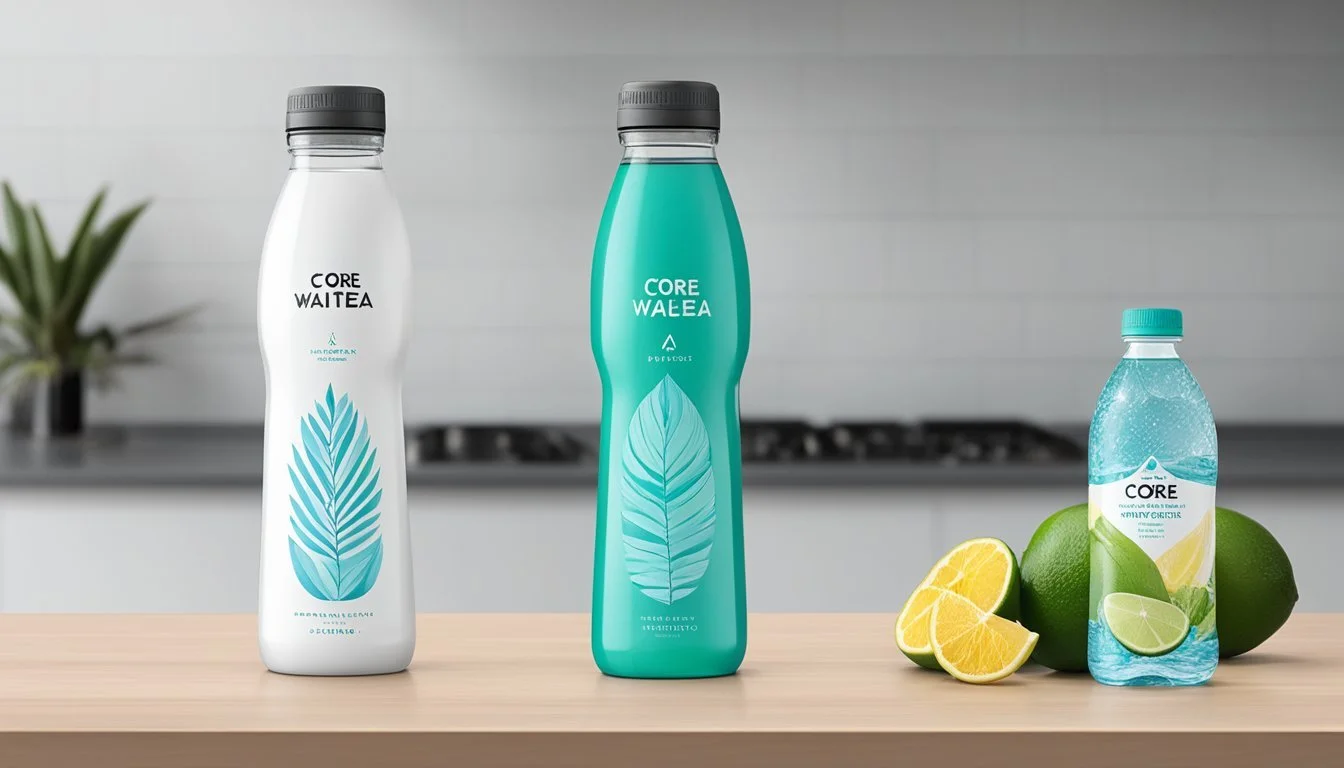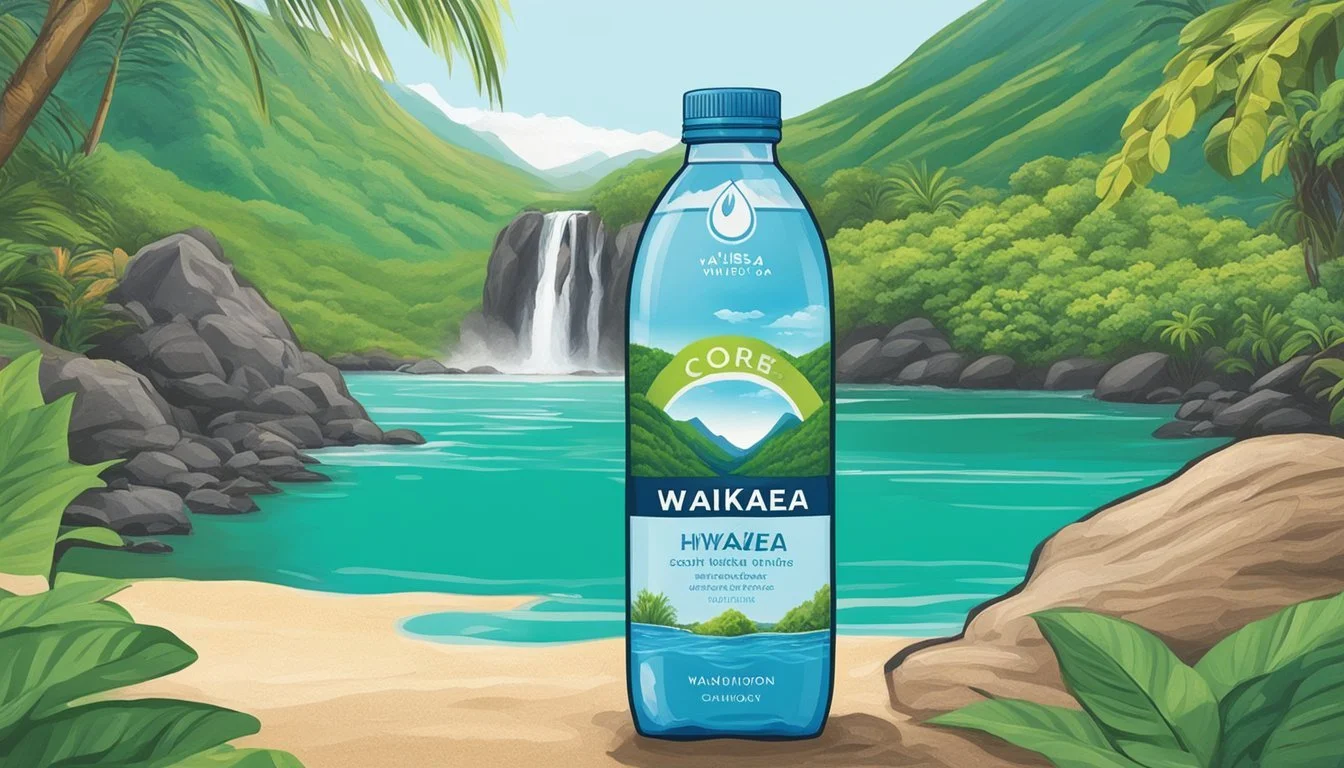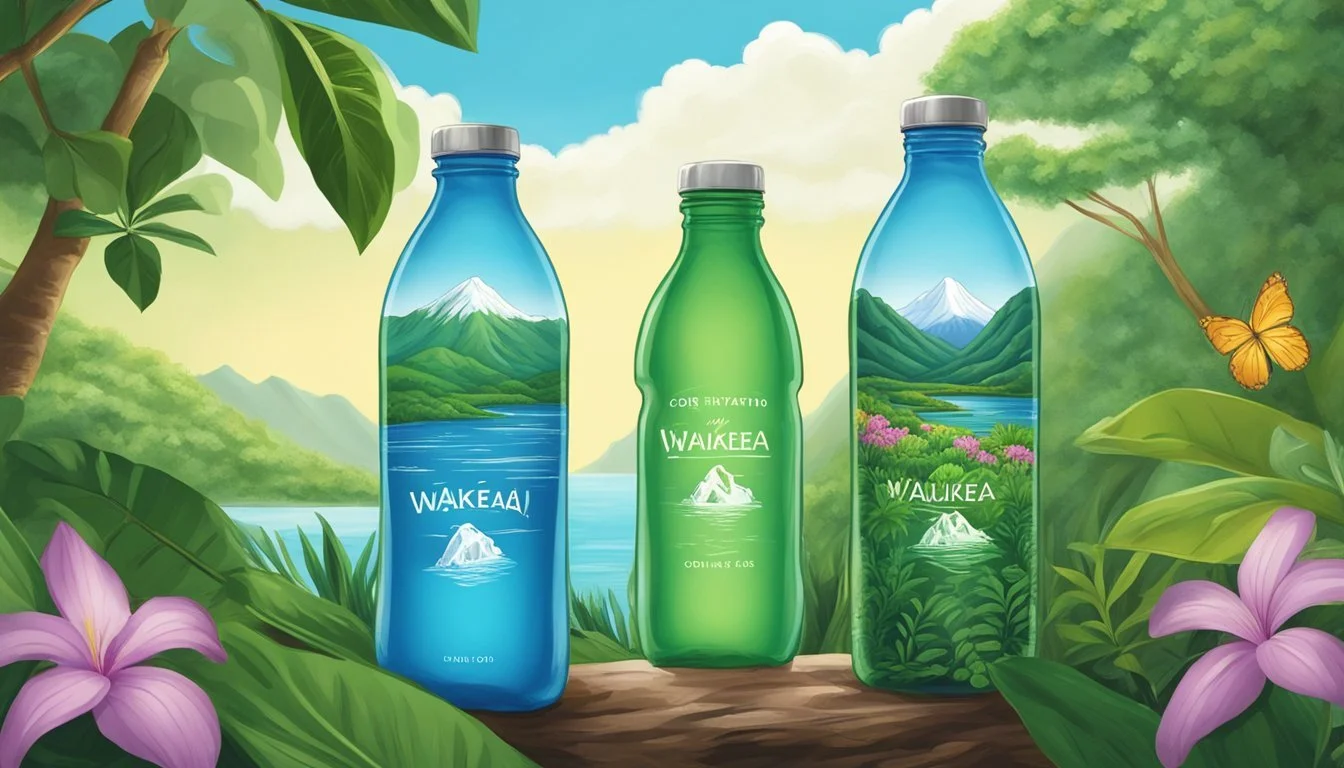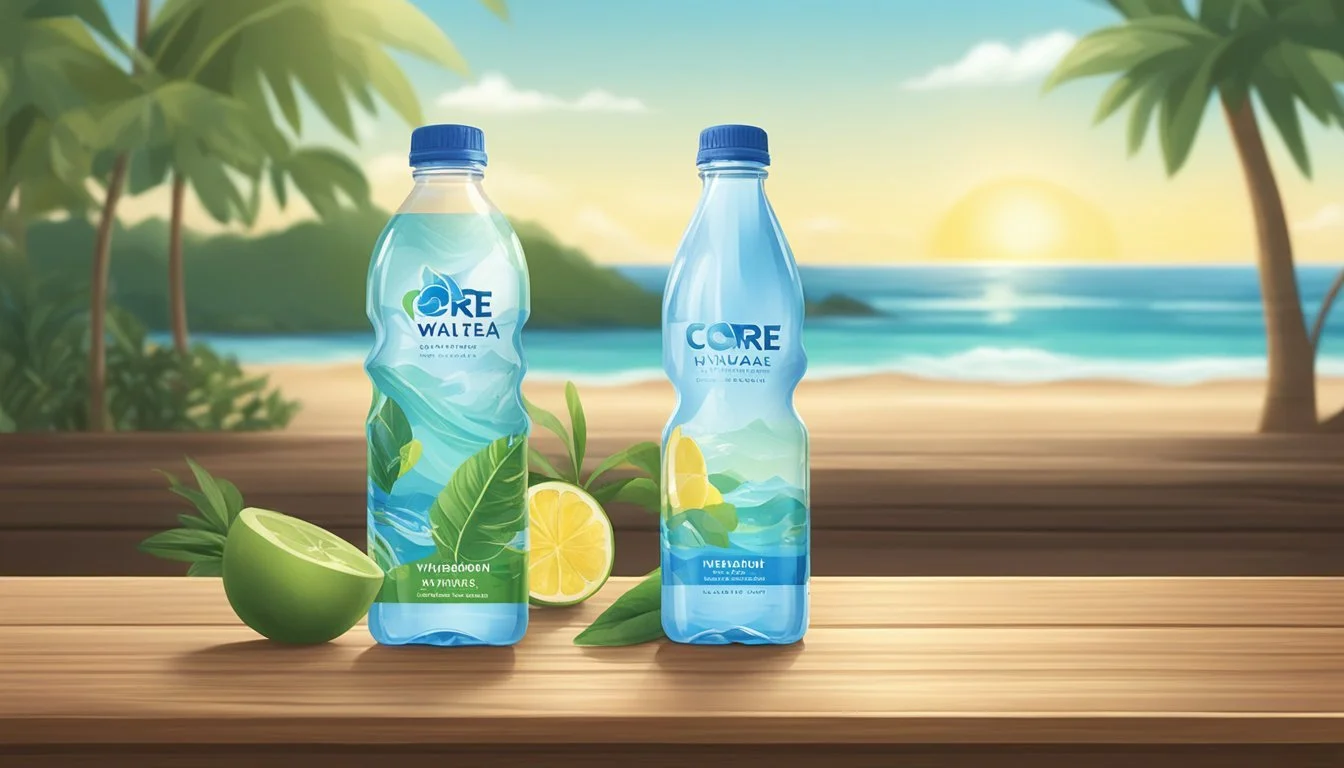Core Hydration vs. Waiakea
A Comparative Analysis of Bottled Water Quality
Choosing the right bottled water can feel daunting, given the numerous options available. Two popular brands are Core Hydration and Waiakea, each boasting unique features that cater to different preferences and health goals. For those who prioritize pH balance and electrolyte content, Core Hydration offers purified water with a balanced pH of 7.4 and added electrolytes for enhanced taste and hydration.
Waiakea water, on the other hand, stands out due to its naturally alkaline pH level of 7.6 to 8.2 and mineral-rich composition. Sourced from a volcanic well in Hawaii, Waiakea not only supports hydration but also delivers essential minerals directly from nature. Its commitment to sustainability, including being certified Carbon Neutral and donating over 5% of its revenue to nonprofits, adds a layer of ethical appeal.
Both brands cater to hydration needs but differ in their sources and additional benefits. Core Hydration is ideal for those seeking balanced pH and added electrolytes, while Waiakea appeals to those who value natural alkalinity and environmental responsibility. Readers interested in making an informed choice between these two will find valuable insights within this article.
Understanding Bottled Water
Bottled water quality and sources greatly influence consumer choices. Specific treatment processes also ensure the water's purity and health benefits.
Defining Bottled Water Quality
The quality of bottled water depends on several factors, including its pH level, mineral content, and the absence of contaminants. Brands like Waiakea boast naturally alkaline properties, with pH levels between 7.6 and 8.2, ideal for balancing the body's pH.
Electrolytes and essential minerals, such as calcium and magnesium, contribute to the overall health benefits of bottled water. Additionally, Core Hydration aligns its water's pH with the body's neutral level of 7.4, ensuring it is balanced and pure. Purity, measured through rigorous tests, ensures there are no contaminants or unhealthy additives.
Sources of Bottled Water
The source of bottled water is critical in determining its quality and composition. Common sources include spring water, natural spring water, and groundwater. Waiakea sources its water from volcanic wells in Hawaii, highlighting a unique mineral profile.
Natural springs provide water that is naturally filtered through underground rock formations, ensuring purity and rich mineral content. Groundwater, often tapped from deep wells, undergoes minimal treatment, preserving its natural composition. For example, Waiakea's spring water comes directly from Mauna Loa volcano, ensuring its freshness and natural alkalinity.
Water Treatment Processes
Various treatment processes improve the safety and taste of bottled water. Methods like reverse osmosis and distillation effectively remove contaminants. Reverse osmosis forces water through a semi-permeable membrane, eliminating impurities and ensuring purity.
The distillation process involves boiling water and condensing the steam, which removes contaminants and minerals. Some brands, like Smartwater, use additional filtration steps to enhance their product's quality and taste. Electrolytes, added during the treatment, replenish essential minerals.
Bottled water brands often combine these processes to produce a product that meets high health standards. Core Hydration, for instance, balances its water's pH and adds electrolytes, ensuring a product that supports hydration while maintaining purity.
Water Quality and Consumer Health
Ensuring the quality of bottled water is essential to consumer health. This section examines the mineral content and health benefits of Core Hydration and Waiakea, as well as the potential risks of contaminants.
Mineral Content and Health Benefits
Core Hydration and Waiakea both highlight their unique mineral profiles. Core Hydration is fortified with electrolytes and minerals such as potassium and magnesium. This is designed to support hydration and overall wellness. The specific mineral blend aims to balance the body's pH, potentially aiding in maintaining homeostasis.
Waiakea Water is naturally rich in minerals, including silica, calcium, and potassium. As the water filters through volcanic rock, it absorbs these minerals. Silica can support bone, skin, and hair health, while maintaining optimal levels of minerals like potassium and calcium is crucial for muscle and nerve function. The natural origin of these minerals bolsters Waiakea's appeal to health-conscious consumers.
Identifying Contaminants and Potential Risks
Contaminants in bottled water pose significant risks. Core Hydration and Waiakea must comply with FDA regulations ensuring water safety. Consumer Reports identified concerns with PFAS chemicals, which are found in some bottled waters but not specifically in Core Hydration.
Total dissolved solids (TDS) levels and the presence of heavy metals like lead, arsenic, and mercury are critical metrics. Testing ensures these substances remain within safe limits. Waiakea, with its natural filtration, claims fewer contaminants, reducing risks. Nevertheless, rigorous testing for all brands is crucial to prevent harmful exposure. By maintaining transparency and stringent quality controls, both brands can offer safer hydration options.
Analyzing Core Hydration and Waiakea
This analysis looks at the distinct qualities of Core Hydration and Waiakea, comparing their unique properties, origins, and sustainability aspects.
Core Hydration's Unique Properties
Core Hydration is recognized for its balanced pH level, maintaining a neutral to slightly alkaline pH of about 7.4. This aligns closely with the body's natural pH, which is ideal for maintaining homeostasis. Core Hydration incorporates electrolytes such as potassium bicarbonate, magnesium chloride, and calcium chloride. These substances contribute to hydration and muscle function, although exact concentrations are not disclosed.
The water is processed through reverse osmosis, ensuring purity by removing potential contaminants. Core Hydration also prides itself on its BPA-free packaging, promoting consumer health.
Sustainability claims are less emphasized compared to its competitors, but the focus remains on the purity and health benefits of the water itself.
Waiakea: A Deep Dive into Quality and Origin
Waiakea sources its water from the Mauna Loa volcano in Hawaii. This natural spring water undergoes filtration through volcanic rock, enriching it with minerals like silica, which supports bone, skin, and hair health. Silica is also important for collagen synthesis.
Waiakea water has a naturally occurring alkaline pH level, which differentiates it from Core Hydration’s balanced pH. This alkalinity can help to neutralize acid in the body.
From a sustainability standpoint, Waiakea is notable for being Carbon Neutral and donates over 5% of revenue to nonprofit organizations. The branding emphasizes both people and the planet, setting a positive example in the bottled water industry. These initiatives underline Waiakea's commitment to environmental responsibility and community support.
Environmental Considerations of Bottled Water
When comparing Waiakea and Core Hydration, it's essential to assess their approach to sustainability and their impact on the environment. This involves analyzing the packaging materials and the overall carbon footprint of each brand.
Evaluating Packaging and Sustainability
Both Waiakea and Core Hydration prioritize sustainable packaging. Waiakea uses 100% post-consumer recycled PET (rPET), which significantly reduces energy consumption and water usage. rPET uses 85% less energy and 99% less water compared to virgin plastic. This material choice reduces Waiakea's carbon emissions by 79%.
Core Hydration, on the other hand, offers 100% recyclable BPA-free plastic bottles. While they do not use rPET, being BPA-free appeals to health-conscious consumers concerned about chemical leaching. Despite being fully recyclable, traditional plastics generally have a larger environmental footprint compared to rPET.
Both brands are making strides towards sustainability, although Waiakea's use of rPET arguably has more substantial environmental benefits.
The Carbon Footprint of Water Brands
The carbon footprint of bottled water includes production, transportation, and disposal processes. Waiakea water is sourced sustainably from a volcanic well in Hawaii and bottled at a facility using 33% renewable energy. Additionally, Waiakea is certified Carbon Neutral and donates over 5% of revenue to nonprofits, further enhancing its environmental credentials.
Core Hydration also emphasizes minimizing environmental impact through its recyclable packaging. However, it does not have the same level of carbon neutrality certification as Waiakea. The distribution and production processes' exact carbon footprint for Core Hydration require more transparency to compare accurately.
Waiakea's efforts in utilizing renewable energy and achieving carbon-neutral status give it an edge in reducing overall carbon impact.
Consumer Preferences and Market Considerations
Core Hydration and Waiakea offer distinct features that appeal to specific consumer tastes and preferences. This section covers the taste profiles, consumer reviews, and cost considerations for both bottled water brands.
Taste Profiles: Core Hydration vs. Waiakea
Core Hydration aims to align with the body’s natural pH levels, typically around 7.4, which they market as neutral to slightly alkaline. This water is purified with added electrolytes and minerals to enhance the flavor profile, sometimes likened to a sports drink.
Waiakea sources its water from Hawaiian volcanic areas, giving it a unique mineral profile and slightly alkaline pH. The water’s distinct taste is mineral-rich and often noted for its smooth, clean finish. Waiakea's naturally alkaline water generally appeals to consumers who prefer a more mineralized taste.
Reviews and Community Feedback
Core Hydration receives mixed reviews, with some consumers appreciating the ergonomic bottle design and balanced pH. Its added electrolytes and minerals are praised, though some find the taste reminiscent of sports drinks.
Waiakea is well-received for its unique taste and environmental commitments. The brand's certification as Carbon Neutral and its philanthropic endeavors resonate well with environmentally-conscious consumers. Community feedback often highlights Waiakea’s smooth taste and eco-friendly practices, building a loyal customer base.
Cost Comparison and Value Assessment
Core Hydration is moderately priced, targeting health-oriented consumers who prioritize pH-balanced water with a smooth taste and convenient packaging. The price is reflective of its extensive purification process and added minerals.
Waiakea, on the other hand, falls into a higher price category. The premium cost is attributed to its unique sourcing, naturally alkaline water, and sustainability efforts. Consumers who value environmentally-friendly products and unique mineral content may see Waiakea as offering better value despite the higher cost.
Brand Key Features Price Range Unique Selling Point Core Hydration pH balanced, added electrolytes Moderate Ergonomic bottle, smooth taste Waiakea Naturally alkaline, volcanic source High Eco-friendly, unique mineral content
Both brands cater to different consumer needs, making the choice heavily dependent on individual preferences in taste, cost, and environmental impact.
Conclusion
Waiakea and Core Hydration offer distinct benefits depending on the consumer's priorities. Waiakea water, sourced from a volcanic well in Hawaii, boasts a naturally alkaline pH level of 7.6 to 8.2. It is enriched with minerals and electrolytes, appealing to those seeking naturally sourced hydration.
Waiakea also prioritizes environmental sustainability, being the first U.S. bottled water to achieve Carbon Neutral certification. It uses 100% recycled plastic and supports various nonprofits.
Core Hydration aims for a balanced approach, featuring a pH level close to the body's natural pH. It utilizes a 7-step reverse osmosis process, ensuring pure and balanced water. Though free from unhealthy additives, some concerns exist about the single-use plastic packaging.
Comparison Table:
Waiakea Core Hydration pH Level 7.6 to 8.2 Close to natural body pH Source Volcanic well in Hawaii Purified water Sustainability Carbon Neutral, recycled plastic Single-use plastic concerns Minerals Natural electrolytes and minerals Balanced minerals and electrolytes
When choosing between Waiakea and Core Hydration, consider personal hydration needs, preference for natural vs. purified sources, and environmental impact. Each brand offers unique attributes, catering to diverse consumer preferences.
More About Core Hydration
Acqua Panna vs Core Hydration: Which Bottled Water is Better?
Boxed Water vs Core Hydration: Which Bottled Water is Better?
Core Hydration vs Alkaline88: Which Bottled Water is Better?
Core Hydration vs Aqua Carpatica: Which Bottled Water is Better?
Core Hydration vs Cascade Mountain: Which Bottled Water is Better?
Core Hydration vs Castle Rock: Which Bottled Water is Better?
Core Hydration vs CBD Living: Which Bottled Water is Better?
Core Hydration vs Crystal Geyser: Which Bottled Water is Better?
Core Hydration vs Crystal Lake: Which Bottled Water is Better?
Core Hydration vs Essence pH10: Which Bottled Water is Better?
Core Hydration vs Hawaii Volcanic: Which Bottled Water is Better?
Core Hydration vs Hawaiian Springs: Which Bottled Water is Better?
Core Hydration vs Ice Mountain: Which Bottled Water is Better?
Core Hydration vs Icelandic Glacial: Which Bottled Water is Better?
Core Hydration vs Just Water: Which Bottled Water is Better?
Core Hydration vs Kirkland Signature: Which Bottled Water is Better?
Core Hydration vs Liquid Death: Which Bottled Water is Better?
Core Hydration vs Mountain Valley Spring Water: Which Bottled Water is Better?
Core Hydration vs Nestle Pure Life: Which Bottled Water is Better?
Core Hydration vs Open Water: Which Bottled Water is Better?
Core Hydration vs Poland Spring: Which Bottled Water is Better?
Core Hydration vs Proud Source: Which Bottled Water is Better?
Core Hydration vs Purely Sedona: Which Bottled Water is Better?
Core Hydration vs Richard's Rainwater: Which Bottled Water is Better?
Core Hydration vs San Pellegrino: Which Bottled Water is Better?
Core Hydration vs Simple Truth: Which Bottled Water is Better?
Core Hydration vs Smartwater: Which Bottled Water is Better?
Core Hydration vs Solan de Cabras: Which Bottled Water is Better?
Core Hydration vs Talking Rain AQA: Which Bottled Water is Better?
Core Hydration vs Topo Chico: Which Bottled Water is Better?
Core Hydration vs Weird Water: Which Bottled Water is Better?
Core Hydration vs Whole Foods 365: Which Bottled Water is Better?
Core Hydration vs Whole Foods Italian Still Mineral water: Which Bottled Water is Better?
Core Hydration vs Zephyrhills: Which Bottled Water is Better?
More About Waiakea
Icelandic Glacial vs Waiakea: Which Bottled Water is Better?
Mountain Valley Spring Water vs Waiakea: Which Bottled Water is Better?
Waiakea vs Kirkland Signature: Which Bottled Water is Better?
Waiakea vs Richard's Rainwater: Which Bottled Water is Better?
Waiakea vs Whole Foods Italian Still Mineral water: Which Bottled Water is Better?





